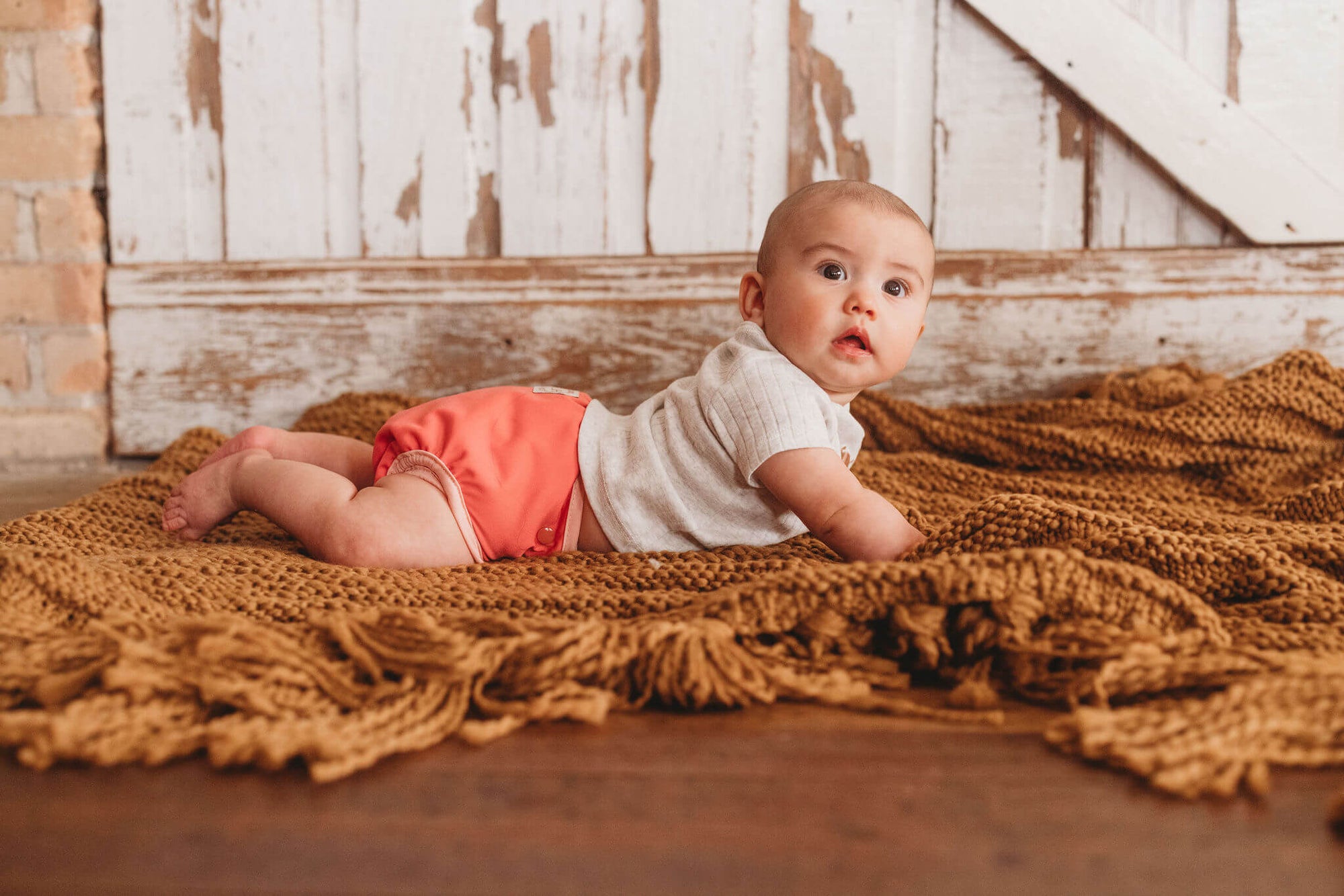What are the Pros and Cons of Cloth Diapering?
Cloth diapers and disposable diapers are both popular options for parents, but which is better? In this blog post, we will compare the pros and cons of both types of diapers to help you decide which is the best choice for you and your baby.
Keep in mind that in 2022, reusable diapers are becoming increasingly popular as a green and cost-effective alternative to disposable diapers. Cloth diapers are more economical and can be reused for multiple children, eliminating the need for frequent diaper purchases. They are also more environmentally friendly, as they are made from natural fibers and don’t contain any harmful chemicals.

Are cloth diapers better? The Pros
The True Cost Between Cloth Diapers and Disposable diapers.
When it comes to cost, even though you may spend more upfront on cloth diapers, in the long run they'll save money. According to consumer reports, the cost of using disposable diapers can range between $1600-$2500 from birth to potty training. This is a staggering figure, because by choosing reusable diapers, parents only pay between $250-$800 depending on the type of diaper they choose.
Dealing with dirty diapers is not as bad as you think.
You can choose between biodegradable bamboo liners, which you can toss in the trash after disposing of the poop. Or you can choose to use reusable liners, which are environmentally friendly and keep poop from touching the diaper, making clean up a breeze! You can also get a diaper sprayer and a spray shield to make sure you are not ever dealing with the solid waste. Once that's done, all you have to do is place the soiled diapers in the washing machine and go!
Cloth Diapers can be generational!
Not sure what to do with your cloth diapers after baby is potty trained? You can always save your cloth diapers for a future sibling, sell them, or give them to a family in need. The savings just keep adding up.
Choosing Cloth Diapers is better for baby's skin.
Contrary to popular belief, cloth diapers are amazing for baby's skin. Parents tend to see a reduction in diaper rash once they make the switch. Remember, good quality reusable diapers are as absorbent as disposables and they don't contain any chemicals!
Environmental Impact
In 2028 the EPA reported* that 3,300 thousands of tons of waste was generated by disposable diapers. The problem with this is that it takes disposable diaper an average of 500 years to decompose. If you think about it, as of 2022, no disposable diapers ever made have decomposed yet.

The Cons of Cloth Diapering
Laundry. This "dirty" word is what keeps most parents from trying to cloth diaper, but the key to reducing cloth diaper laundry is to have a good number of cloth diapers. The more cloth diapers you have, the less laundry you have to do. Let's see how this works.
If your baby goes through 5 cloth diapers per day and you have 10 cloth diapers, this means that you would have to do laundry every other day. Now, let's say that you have 20 cloth diapers, and your baby still only uses 5 diapers per day, this means that you only have to do laundry on the fourth day, dramatically reducing your laundry time - makes sense?
Upfront Investment
Many parents don't like that you have to purchase a $20 cloth diaper up front, when that same $20 gets you a pack of disposable diapers. But that one diaper can be washed and reused for many years, once that pack of disposables are gone, you have no more diapers.
Daycare Dillema
Not all daycares or child care providers accept cloth diapers. This can be a huge deterrent to parents who want to start on their cloth diaper journey. One way to deal with this is to cloth diaper when you can!
Disposable diapers Pros
Super convenient
Disposable diapers are so easy to use, anyone can do it. No snaps to deal with, no laundry, no cleanup. It's a one and done solution.
Diapers On-The-Go
Disposable diapers also have an advantage when you're traveling on planes, or out of state, because you can dispose of them anywhere.
Disposable diapers Cons
Expensive
Disposable diapers are expensive! Sure you can coupon, and shop at discount stores, but in the end, you will have to account for that expense for the first four years of your baby's life.
Supply Chain Issues
As we saw during the pandemic, family essentials are not always prioritized, and global supply chains can be disrupted. We saw an enormous amount of families choosing to switch from disposables to cloth diapers because they could not count on their grocery stores to have any diapers available. Once you purchase your reusable diaper stash, you are set to go, no more supply chain issues, no more late night trips to the grocery store. In short, your baby's bum is always covered.
So which would you chose? cloth or disposable diapers?
Your time with your new baby is after all the most important thing. If you feel cloth diapering would be good for your life situation, it's a great clean option. If you prefer convenience, disposables win. Remember, cloth diapering is not an all or nothing proposition, you can cloth diaper part time and still make an impact!
Source: https://www.epa.gov/facts-and-figures-about-materials-waste-and-recycling/nondurable-goods-product-specific-data#DisposableDiapers




